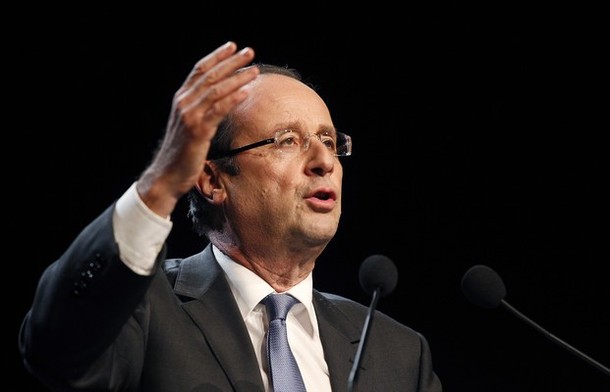French Socialist presidential candidate François Hollande recently delivered his defense program in an underwhelming speech that vacillated between vague, grandiose assertions of France’s “independence” on the international stage and its need to act in concert with other countries in addressing common security threats.
Such a balancing act is possible. Indeed, it captures well the mentality of France’s past presidents vis-à-vis its Western allies, the US in particular. In the present security context marked by such transnational threats as terrorism and WMD proliferation, however, France’s allies will need to be able to count more than ever before on its commitment as well as its contributions.
Hollande’s promise to withdraw France’s 3,800 troops from Afghanistan by year’s end does not augur well for cohesion within NATO. Indeed, one of Hollande’s first tasks if elected president will be to justify this unilateral decision to NATO allies at the Chicago summit. Right out of the gate, Hollande risks giving a bad first impression to Britain and Germany—the two European NATO members contributing most heavily in Afghanistan—not to mention the United States. In addition, Hollande’s ambivalence over France’s recent reentry into NATO’s integrated military command will not help matters.
This arm’s-length posture toward NATO will also undermine Hollande’s ambition to revamp “European Defense,” the EU’s Common Security and Defense Policy. By his own admission, such a project will not go anywhere without deepened Franco-British and Franco-German cooperation. It is true that, amid Europe’s continued defense spending cuts, there certainly is wisdom in convergence in defense matters. Yet, Hollande’s pleas for pooling defense resources and promoting mission specialization will require more than the French electorate’s support: they will also require the cooperation of France’s European allies.
Hollande cannot take such cooperation for granted. In fact, UK Prime Minister David Cameron and German Chancellor Angela Merkel have not concealed their support for Nicolas Sarkozy, Hollande’s incumbent rival.
If he wins in May’s elections, Hollande may have to learn on the job the necessity of closing ranks with France’s allies in the face of common threats. Balancing this with legitimate concerns over national sovereignty and identity is part of the art of statesmanship.
France’s allies—just like France itself—have much to gain from effective French leadership and collaboration in defense. A President Hollande will be counted on to provide it.
Dan Kettinger is an intern in the Atlantic Council’s Program on International Security.
Image: getty%202%2024%2012%20Francois%20Hollande.jpg
